Guess I'll see you next lifetime?
Pondering Past Lives and twin flames
In this issue:
Headliner What is Past Lives really about?
Revival My first short film about E Pellicci and East London caff culture
Aftershow Mary Ann Hobbs on the power of live radio, Road House what a mess, lifting stones is as old as time, let's speak more on Substack, Patricia Highsmith's snails and other peculiarities.
It took me a while to give Celine Song’s lauded debut a chance. The trailer felt low stakes, too understated. I couldn’t sense enough jeopardy to care about what draws Na Young (Greta Lee) and Hae Sung (Teo Yoo) to one another. Or to see if they end up together.
Let it be known, I’m happy to drift along through awkward silences, broken conversations and frustrations at what’s left unsaid, because these are the stuttering beats of so many relationships and what-ifs.
I don’t need deep exposition or explanations, romantasy or melodrama. You’re reading someone who often returns to Richard Linklater’s Before trilogy for the complications and for whom Wong Kar Wai’s languid and brooding In The Mood For Love is an all-time obsession.
Pawel Pawlikowski’s Cold War, a concise yet sprawling story about two lovers brought together by circumstance and connected for all time, was captivating, though I admit that’s mainly because of the heat between Joanna Kulig and Tomasz Kot.
Here's the thing. It’s easy to dismiss Past Lives as another meet-cute becomes romantic saga. What the film is really about is more elusive and profound. At the heart of the story is a yearning. One viewer likened this mood to the Portuguese, folkloric term saudade. Hard to translate but think of it as a melancholic longing for someone or something absent. Hold that thought, particularly the second part.
Check the synopsis and you might believe it’s about childhood sweethearts separated by events beyond their control, who attempt to reconnect 12 years later online. Yes and no.
Na Young is now going by the name of Nora Moon, an aspiring playwright in New York, while Hae Sung is studying engineering in Seoul and living with his parents. They are both glued to their own paths and neither seems willing to take a detour for the other.
Past Lives’ understated manner lets us into the story, inviting us to find our place in this predicament. I can’t be the only one who has felt an instant connection to someone who lives in another country and with whom you somehow maintain a … let’s call it a friendship … over many years. Nineteen in my case.
This person has rarely been without a partner. We have shared a few batches of days in each other’s company in our respective countries, lost in the moment, forgetting the time. Apart from that, it’s occasional rambling emails and messages. Hardly any calls in our case. But she always writes to me on my birthday and sends warm wishes in the new year. Not triggering at all. I’m fine with it. Honestly.
One January, a drunken missive landed in my inbox because I do not reciprocate with happy birthdays. If you told me what the date is, I would. What’s this really about? That message was deleted in embarrassment, followed by an apology for the spelling mistakes, which was cute/unnecessary. Her English is excellent.
Bonds far more deeply woven in my life have withered over the years. What keeps us in a loop? The timing has never been right. So this history, our history, is an easy avenue into this film. However, you wouldn’t catch me dithering around like Hae Sung.
Flashback to an airport lounge in 2010 and I laid it all on the line in a gushing text message before boarding. Now lost and probably best consigned to some bleeding hearts’ abyss.
There may have been an advance or two in person. The funniest display of my lovelorn ways was when I rushed out of my friend’s flat to meet this girl and ran into the hinge. Cut to her flat and she’s patching up a bloody gash that I insist is just a scratch. What a pathetic, vaguely romantic scene… I should make a film about this one day 🤔
But back to this film… For most of us who aren’t Korean, Past Lives was our introduction to the word “in-yun”, which Nora tells her soon-to-be husband Arthur (John Magaro) means “providence”. (But really, a way to seduce Westerners.) Song has said it originates from Eastern philosophy and encapsulates the many layers/lives (up to 8,000) that lead to these two people crashing into each other.
There is an almost ineffable, indeterminate quality to their connection, which left some critics struggling to believe the attraction. To some, the central relationship felt empty. The characters insipid, almost neutered towards one another.
How intimate did they become on those video calls? How close can you remain with so much time and distance between you and so few shared experiences since a childhood crush?
Kevin Cookman of Merry-go-round magazine (and Katarina Dokolovich) had strong opinions on this. “I think that much inaction would be perfectly fine if the cinematic language held these moments up as monumentally as we’re told the characters [have].
“There’s a moment where Nora and Hae Sung meet in a Brooklyn park and make skin contact for the first time in over 20 years and, maybe this is a me problem, but I felt no butterflies. Past Lives is built on this false modesty, where its dull subtlety only brings more attention to its self-indulgence…”
I wouldn’t go that far but a little extra electricity between them would have made me invest more in their fate as a couple. The audience does need to take a leap of faith. Perhaps this is the red herring of the film. Remember that Nora is an émigré who had little say in where she lived as a 12 year old after her parents moved to Toronto. Now she has made a new life for herself with Arthur in New York.
When she bursts into tears at the end, Nora is mourning a lost childhood and a broken connection to her homeland, which Hae Sung represents. With that comes regret and wondering about the lives she could have lived. The simple act of her reminiscing in Korean activates a once dormant region of her memory.
Someone called @natedgg890 posted this anecdote under a video essay about the film. There’s a lot to miss here. A lot to mourn.
Earlier, while in bed, Arthur tells Nora she makes his whole world bigger and he wishes he could do the same for her. This is a good insight into his outlook of their relationship and the parts he can’t seem to access. “You dream in a language I can’t understand”, he tells her. This reveals how much of home still resides in Nora, which she needs to rekindle.
Arthur is certainly not the evil, white American antagonist keeping her from destiny that he says he could/should be. In heavier hands, his character could have ramped up the conflict to drive the story of an ugly love triangle but Song leaves space for complex feelings to be resolved over time. Smart direction to not let Magaro and Yoo meet until that first encounter in the apartment. Could you feel the tension? It was genuine.
Before Nora and Hae Sung’s farewell on the sidewalk, we are treated to perhaps the best scene of the film in that low-lit bar. It’s where we first meet these three characters. Where a prying observer studies them and asks, “Who do you think they are to each other?” Debatable whether we needed the voiceover.
We zoom in on Nora, the woman in the middle, who seems to be lost in her own thoughts, before she looks at the audience with a hint of mischief and beckons us into their drama. It’s what Song calls a “cosmic joke”.
The climax of the film is so personal that the viewer is part of the conversation. Hae Sung calmly dispenses his frustration at how things have turned out and the fact he and Nora can’t be together. Who gave up on who?
He shows a flicker of vulnerability at one point. After expressing surprise at how Nora could have met someone else if she missed him, he says: “I didn’t know that liking your husband would hurt this much.”
Nora also has a couple of things to get off her chest, balking at Hae Sung’s belief that he is strong mentally. As if to say, then why didn’t you go after what you wanted 12 years ago instead of following a conventional path in Korea?
All praise to John Magaro and his solemn gaze in these moments, conveying Arthur’s insecurity, jealousy and trepidation. He may not understand much of their exchanges but knows he is the critical break in their deep connection. One that he might not match up to. And yet Arthur gives Nora space to find her own place in these complex feelings – without judgment.
Hae Sung tries to come to terms with the situation by saying: “It was good that you immigrated. Korea is too small for you. Not enough to satisfy your ambition.”
“But the truth I learn here is that you had to leave because you are you.
And the reason I liked you is because you are you.
And who you are is someone who leaves.”
This could be read as criticism but Yoo delivers it without venom or bitterness. Instead, with a measure of dignity in his resignation.
Nora is graceful in response and says the girl that Hae Sung fell for all those years ago was real, as is the love he felt. But in the here and how of NYC, 24 years later, their in-yun does not take the form that he wishes it did. She is Nora now, not Na Young.
In that bar, Nora and Hae Sung find the humour in the inevitability of their fate. They speculate on who they were to each other in their past lives. Nora puts it like this: “Maybe we were just the bird and the branch it sat on one morning.” That’s it. Let him down gently with some poetry.
Sidebar: do you believe in twin flames?
I only discovered this expression about a year ago. What distinguishes it from soulmates, who are supposed to complete each other, is that twin flames push each other to grow, as this article explains. And if you believe in reincarnation, that may happen over more than one lifetime.
Oh … is that Erykah I hear fading in, tempted by this beautiful guy’s energy but telling us she’s already someone’s girl? 🎶 🎶
It got to be the live version though, because it hurts so good. Backing singers Karen Bernod, Joyce M Strong and N’Dambi telling us not to cry in so many ways.
In the rarely seen video, Badu travels from Motherland 1637AD to The Movement in 1968 and through to an Ancient Choosing ceremony in Motherland 3037AD, feeling an affinity with Pete Rock and then Method Man.
“Wait a little while.”
She ain’t kidding.
Relationships expert Cara Kovacs tells us that meeting your twin flame can feel intense and familiar at the same time. There can be tension as you confront some of things you have been running from or denying. But you will “eventually reflect each other in a way that heals deeply held wounds from childhoods and past lives,” says Cosmopolitan.
Yoo carries a forlorn, aching demeanour throughout Past Lives, eyes reddened and weary as though he has been crying throughout the film but not once do we see him shed a tear. Instead, he gazes around, into space, up at the skies looking for a sign. A divine intervention, possibly.
I was curious about all those lingering shots of Hae Sung alone against city backdrops, as if in his own space. The reflections of street scenes in puddles, pensive looks and repetitive body language. But I think Song was trying to communicate something other than solitude.
In their first conversations, Song and cinematographer Shabier Kirchner talked about how love has the capacity to stop time. “To mould, morph, stretch it, shape it,” says Kirchner. Its fleetingness and circularity are also evoked in Christopher Bear and Daniel Rossen’s lilting score, which ruminates and echoes through the years.
Sometimes this theme directly influenced how the actors moved on screen. When Hae Sung’s Uber arrives at the end, we see him and Nora walk to the left. The sidewalk becomes an imaginary timeline. They pause to speculate on what might happen in another life before saying goodbye as they once did. Nora then goes right and returns to her present with Arthur.
I read some criticism of the dialogue between Nora and Hae Sung. That it is childlike, stunted, not intimate or exploratory enough. Two adults who aren’t able to express how they feel until it’s too late.
Isn’t that also a facet of the slippery nature of time? Trying to pick up where you felt off when circumstances have changed. How can you truly relate to each other in the present when you are living in the past?
In that bar, Hae Sung resolved to let go of Nora as someone onto whom he projected his idea of love and channelled his desire. In turn, he helps her to resolve her nagging dislocation so Nora can move on with greater conviction. Who knows whether their paths will cross again but Hae Sung is … hopeful.
There is a transfigurance to Past Lives. It will mean different things to different people based on where they are in life and with whom. If there is one overarching theme, I think it is acceptance. We can be thankful for past opportunities while grieving what never came to be.
We can follow intuition and embrace new encounters, while leaving the door slightly ajar for fated reunions. As Nora’s mother says, before they emigrate, “If you leave something behind, you gain something too.”
When remains to be seen.
Breakfast at Pellicci’s
E Pellicci, on Bethnal Green Rd, is one of London's most cherished caffs. It's a bustling banter-charged hub, an East End institution and, above all, a family affair. It was here that I made my first short film several years ago one manic afternoon.
Someone asked to see it at the last Substack meet-up in London. Here you go. A little rough around the edges and I would make different choices now, but it’s got soul.
Walk in for the first time and you'll be taken back by the sheer energy of this tardis. The sound of chatting, laughing, cutlery on crockery, slurping, constantly shifting chairs… The generous welcome and the cosiness of the premises make you feel as though you're in the Pelliccis' crowded dining room. Its etiquette established over the past 100 years and refined by three generations.
Customers and staff banter on first-name terms, strangers are thrown together and quickly make friends, tables are turned around and plates are brought out at an impressively rapid rate. Always with a wink and a smile.
If you can't decide how you like your eggs or you're killing time at the till fiddling with your wallet in the hope that your mate will cover the bill, you're going to be pulled up on it. And then you'll want to come back and have the mickey taken all over again.
At a time of rising inequality, where fault lines are opening up around issues of class and race, and cafe culture has given way to high-speed coffee culture, it's places like this that bind together a community. Here we can all meet as equals and put the world to rights over some good honest grub.
Happy to report that the caff is still packing them in. See for yourself here. You might recognise a few faces. Pop in the next time you are up east.
Mary Ann Hobbs on the power of radio
I took this RA Exchange podcast for a walk the other night, feeling a little disillusioned after completing another radio show that will probably not reach its intended audience. Why? There is too much noise, clutter … stuff out there. Influence is more important than ability. Social networks will not solve that problem.
Mary Ann Hobbs’ tribute to the power of live radio revived me. It was a reminder of what I am working towards. Why we do what we do – that’s anyone who speaks into a microphone and shares their world in sound. So it might become OUR world.
Listen to these eloquent and resonant words around five minutes in as she reflects on the importance of live radio during lockdown. It’s unifying energy and its joy. “That you stand or fall in a moment and that you are at the epicentre of something that’s beautiful and rare.”
Mary Ann continues to have a huge influence as a broadcaster, curator and mentor. From The Breezeblock sessions on Radio 1 in the late 90s to Dubstep Warz opening up new sonic frontiers in the 2000s, to 6 Music mornings and three-minute epiphanies that centre so many of us.
Her story is driven by instinct, passion and awe. What a contribution to music and culture in the UK.
The quest to pick up the lost lifting stones of Ireland
While cruising around County Mayo last year, I kept wondering how long it must have taken to build all those walls with jagged rocks. I was fascinated by the geology. And look what Pocket serves up as a #lifehack. A very well-written adventure story about kettlebell champ David Keohan (aka @_indiana_stones_) who is on a mission to find and lift some of the most gigantic, sacred boulders on the isle.
It’s not just about doing some primitive form of functional strength training for The Gram. This is about reconnecting with the land, history and an ancient culture. If you are interested in the deeper significance of strength through the ages, seek out Alyssa Ages’ book Secrets of Giants.
I would also recommend David’s appearance on The Blindboy Podcast (which is live in London on 1 May). Before their interview, the sweary raconteur reads Liam O’Flaherty’s short story The Stone. It’s extraordinary and will put you right in the mood for this physical pursuit.
Write it, then read it aloud
The use of sound on Substack has been a growing fascination of mine. First kindled by
post a few months ago. Then discussed at the last London Substack writer meet-up.For me, the lifelong process of finding your voice goes beyond the written word and Adam’s quote below really hits home the potential to stand out that rests in each of us.
’s post about our unicorn voice is also referenced by Substack Writers. It explains – in quite a moving way, actually – how our voice carries this unique fusion of identity that’s inherent, inherited, acquired, altered and lived-in.Or, as Samara put it more succinctly, “Our voices reflect our life experience. That our life experience counts.”
Freaky pets for freaky people

So many revelations in this new extended edition of
‘s Art Dogs, unravelling the enigma that was author Patricia Highsmith. A sociopath, long-time alcoholic and apparently odious person to be around, for whom perversion was her "guiding darkness". A character stranger than fiction, indeed.Someone who felt deeply rejected by their mother as a little girl and by 12 had decided she was a man born in a woman's body. Who attended a therapy group of “married women who are latent homosexuals" and opted to amuse herself by trying to seduce a few of them. I LOL'ed at her brazenness.
Her tender love of gastropods – whose mating rituals she would closely study – and the story about her smuggling snails under her breasts. Try and top that. And co-creating a children's book called Miranda The Panda Is On The Veranda? I need it.
Bailey's point about how these life experiences informed the author's path in later years is fascinating.
“I think Patricia Highsmith lost her ability to access Kierkegaard’s faith as a young girl. Thus she sought another tack – a radical one. ‘She challenged God by asking: Have you the courage to show me hell?’”
What Highsmith did do with remarkable acuity and skill was to channel these dark obsessions, perversions and her understanding of what it felt like to be "a little cracked" into compelling, high-stakes fiction.
Susannah Clapp describing Highsmith as "a balladeer of stalking" feels bang on. No better example of that than The Talented Mr Ripley. Someone brought the following passage to my attention a while back and how Highsmith makes Tom appear pathetic yet worthy of empathy in how he wants so badly and so openly. It's beyond intuitive.
"He actually had been too weak even to leave the hotel, but he had crawled around on the floor of his room, following the patches of sunlight that came through his windows, so that he wouldn’t look so white the next time he came down to the beach.”
I will get a copy of Strangers On A Train from the library. Any other Highsmith recommendations would be gratefully received 🐌
Back soon with thoughts on that Ripley TV adaptation starring Andrew Scott. Swoon.
Road House 🤦🏽♂️
I tried not to let my love of Swayze and the original Road House get in the way of a good time. And I respect the physical challenge in making this (especially for Jake and in the final showdown). But the film was awful.
Inane storyline, lame villains, Conor McGregor OTT as a savage menace and yet somehow less chilling than Jimmy (played by Marshall Teague). The bar in the Florida Keys had no vibe and wasn't the ground zero it should have been (go scrap on Frankie's boat, I don’t care).
There was no depth or charisma to Dalton. Just a weird grin and dodgy one-liners. His trauma felt tokenistic. Jake, you are so much better than this.
The slap-fight scene suggested what they were trying to do. Offer something high-octane yet silly, reinventing Dalton as this aloof joker with demons we'll never know. But there’s a thin line between not taking yourself too seriously and being laughable. Swerve it.



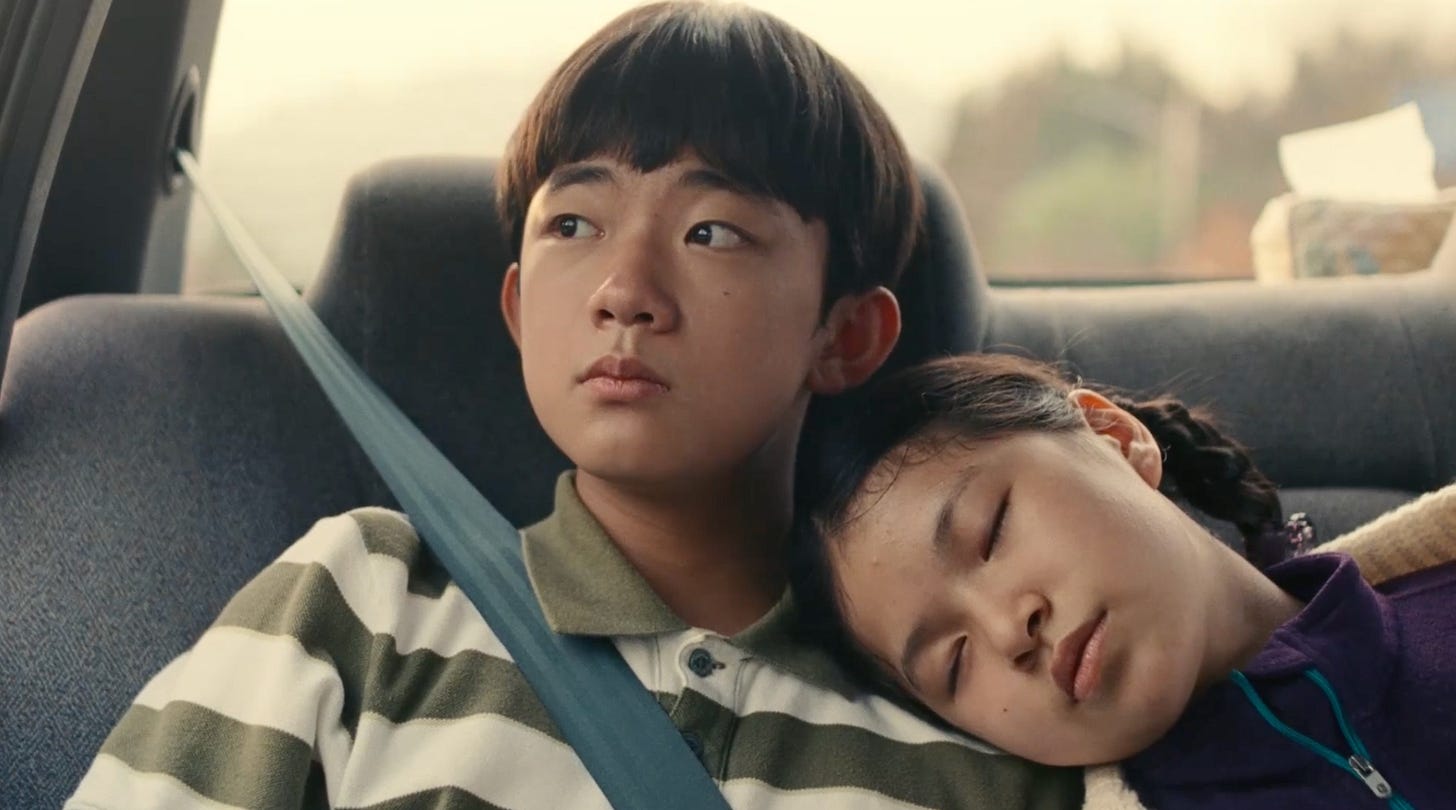







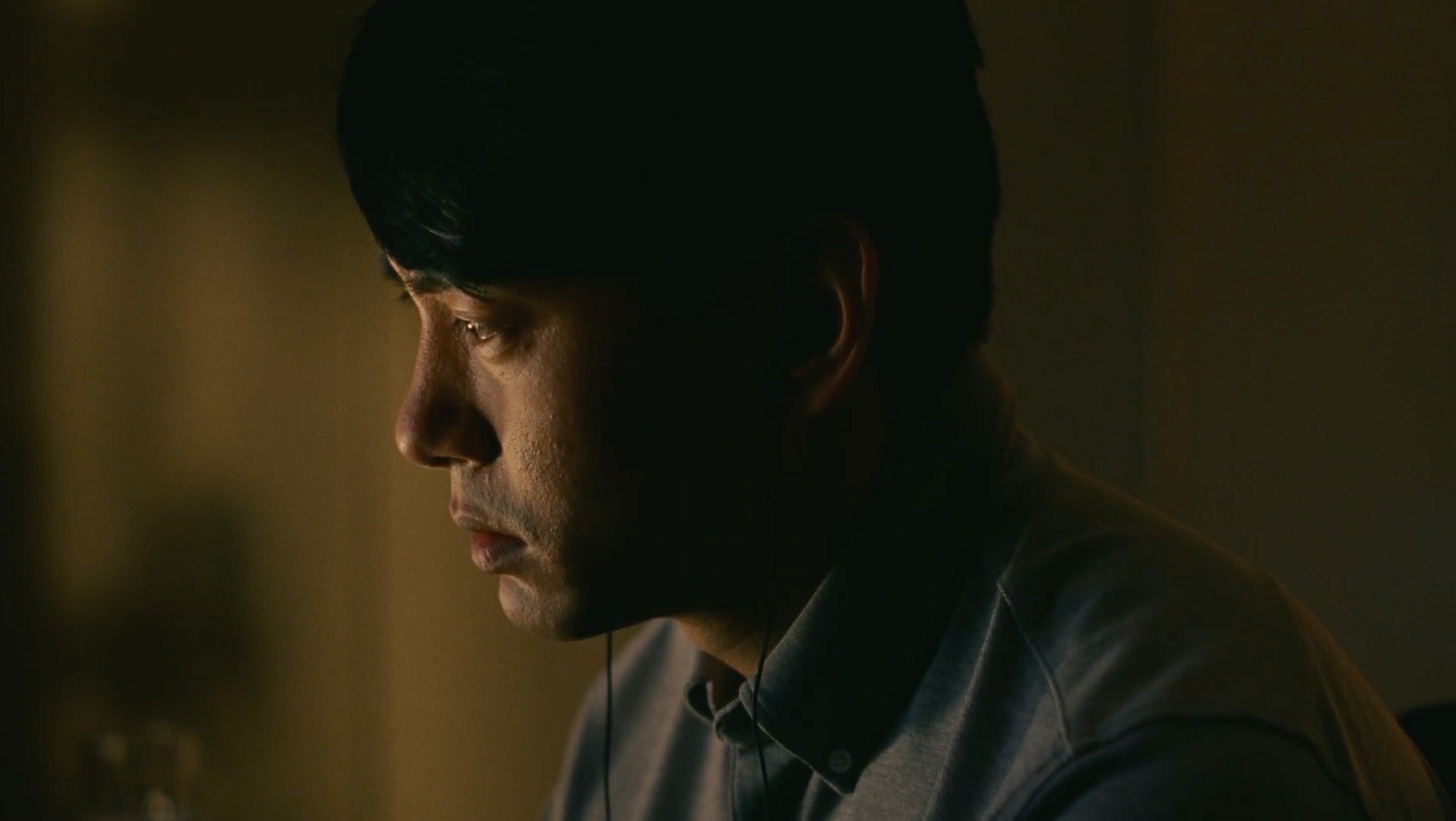



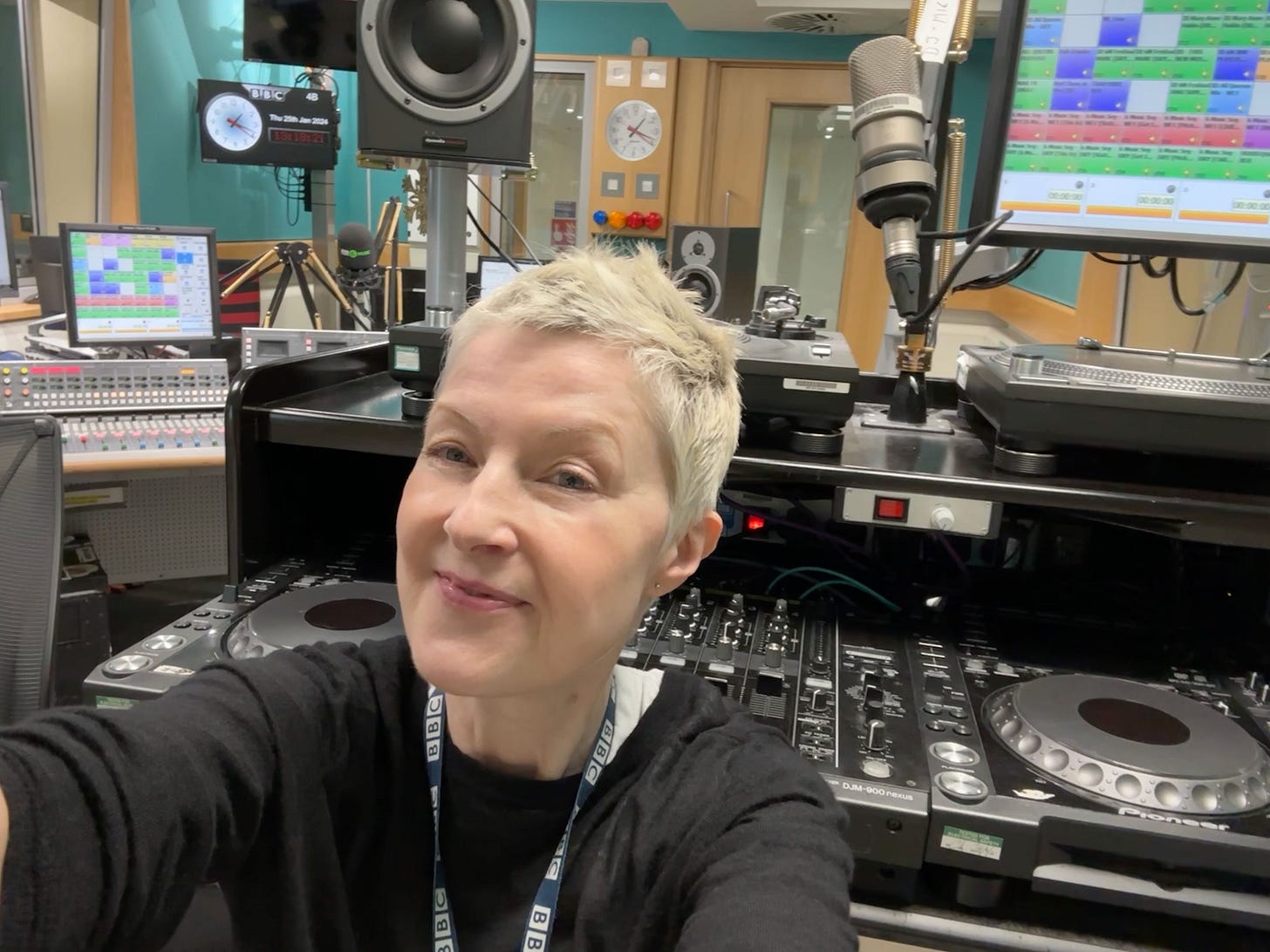
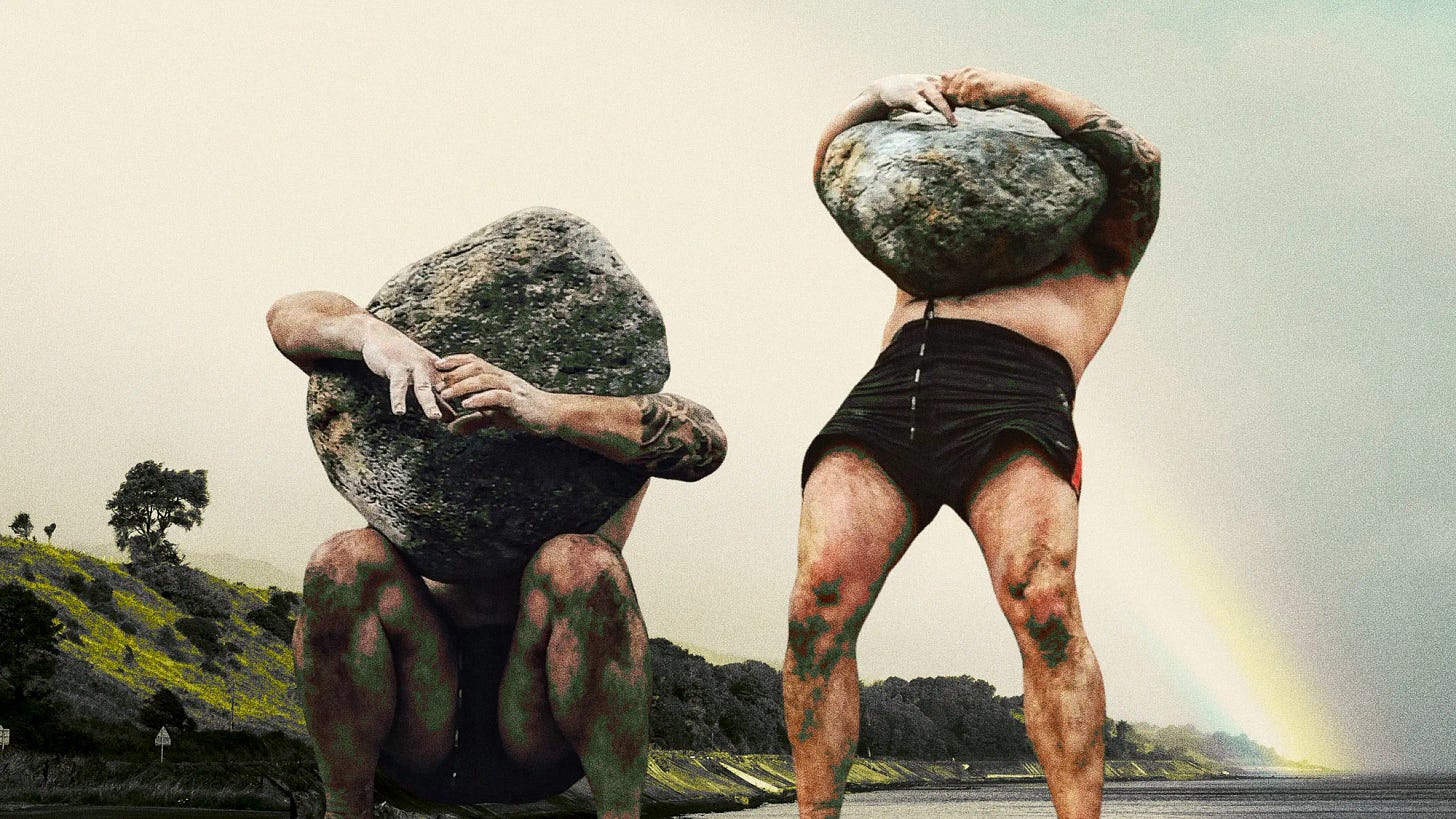

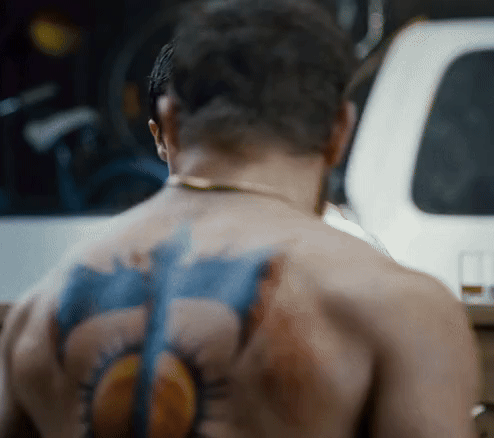
Excited to check out your documentary, Amar! Isn’t it interesting coming to older work we’ve done, seeing the younger choices? Thank you for sharing. Also, E Pellicci looks amazing. I love a café like that; and if I ever find myself in London, which I hope I do, I will visit. I keep a list of places I should visit if I get to certain spots. I do like to roam after all.
And I can’t thank you enough for the shout out to my mini homage to the soundscape of Substack. I find myself wanting to do more and more with sound. Oh only there was the time to get all the projects projecting. ;)
Loved this, Amar!
I agree with a lot of your review here. I really loved the subtlety of Past Lives and felt it was about identity and feelings of connection, more than the romantic. However I also agree with you, at points in the reunion, I wanted a little more spark or something to slightly change the pace of the film. Yet, if it had done that I wonder if would have lost the naturalist capture the awkward collision of two lives and two worlds come together after a long time.
I do believe in Twin Flames, but I think they are reserved/possible for a small number of people. I know two people where I am convinced they have met their twin flames. Here’s hoping I’ll find mine someday.
LOVE the look of this short. That review of E Pellici was fab, really transported me to a seat at the table. I look forward to watching!